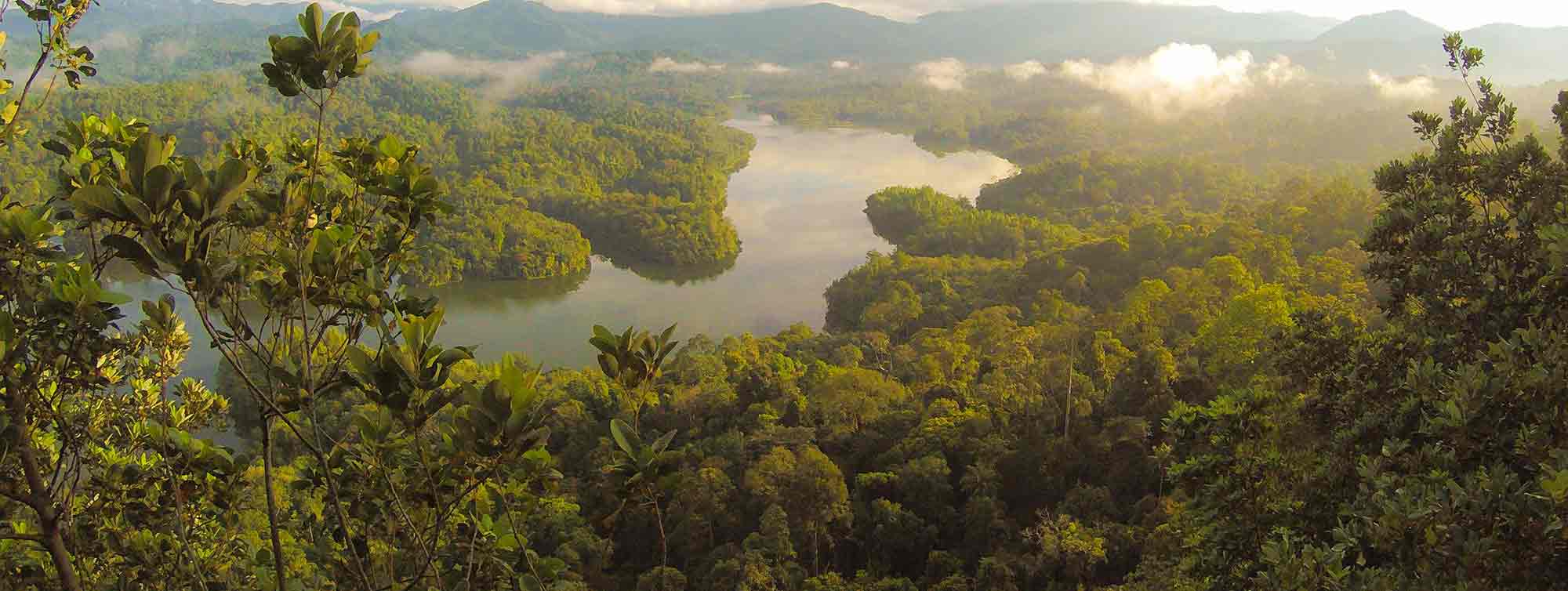432 Resources
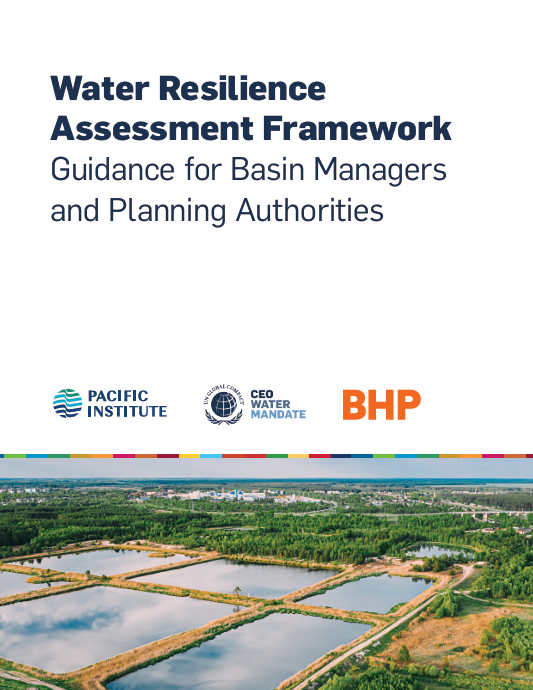
Water Resilience Assessment Framework Guidance for Basin Managers and Planning Authorities
August 29, 2024 | publication
By fostering smarter resilience strategies, effective actions and clear monitoring, this document empowers BMPA in building systemwide resilience in three ways.
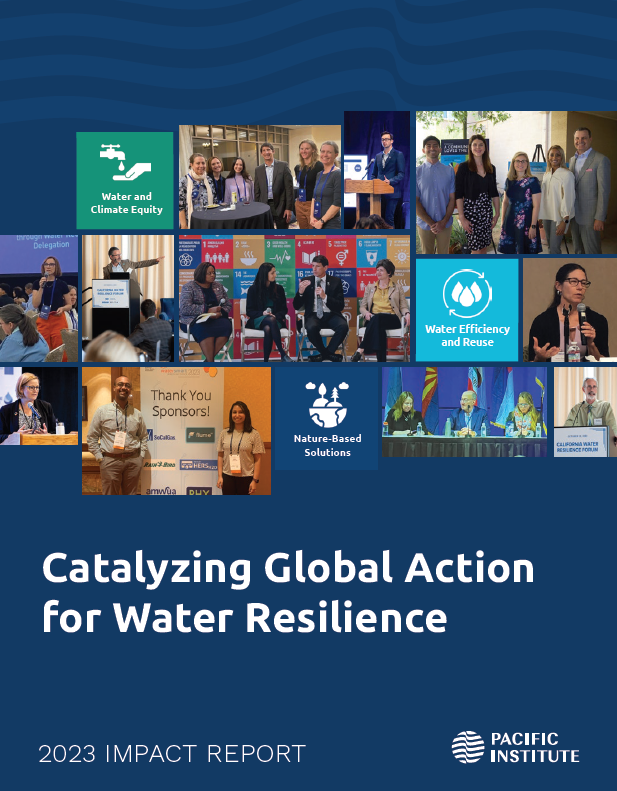
Pacific Institute 2023 Impact Report: Catalyzing Global Action for Water Resilience
August 26, 2024 | publication
In 2023, the Pacific Institute has once again proven to be at the forefront of addressing the world's most pressing water issues with innovative and science-based solutions. Amid evolving environmental and geopolitical challenges, including record-breaking climate events and increasing water-related conflicts, our mission to catalyze water resilience has never been more crucial.
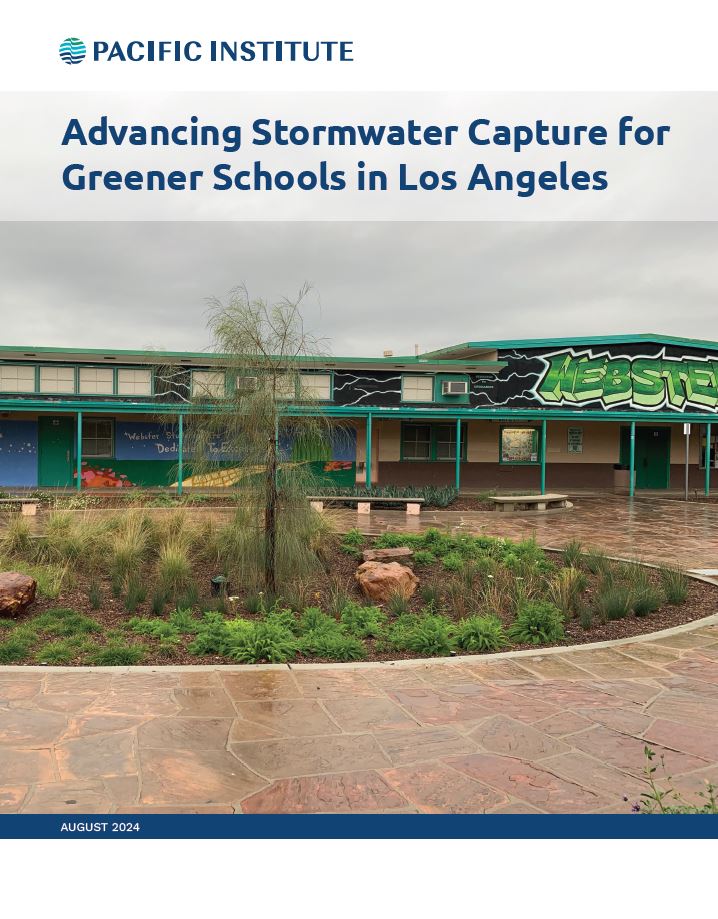
Advancing Stormwater Capture for Greener Schools in Los Angeles
August 15, 2024 | publication
This report, "Advancing Stormwater Capture for Greener Schools in Los Angeles," reveals the significant potential for stormwater capture on public school campuses in Los Angeles County. It estimates that the total stormwater runoff generated from LA County public school campuses is approximately 3.15 billion gallons (9,510 acre-feet) per year. Of this amount, about 2.04 billion gallons (6,190 acre-feet) per year could potentially be captured to augment water supplies and help green school campuses.
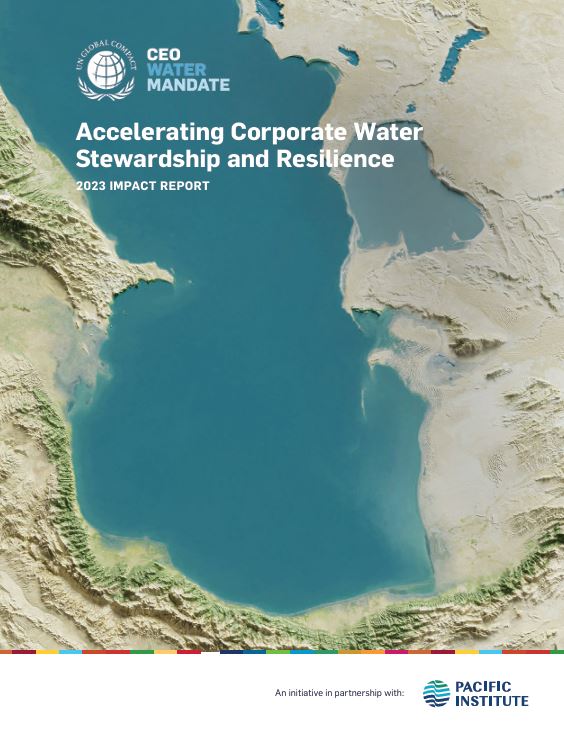
2023 CEO Water Mandate Impact Report
August 13, 2024 | publication
As the CEO Water Mandate, a partnership of the UN Global Compact and the Pacific Institute to advance corporate water stewardship, advances on its ambitious 2030 goals to build a water-resilient future, we are excited to share this year’s Impact Report.
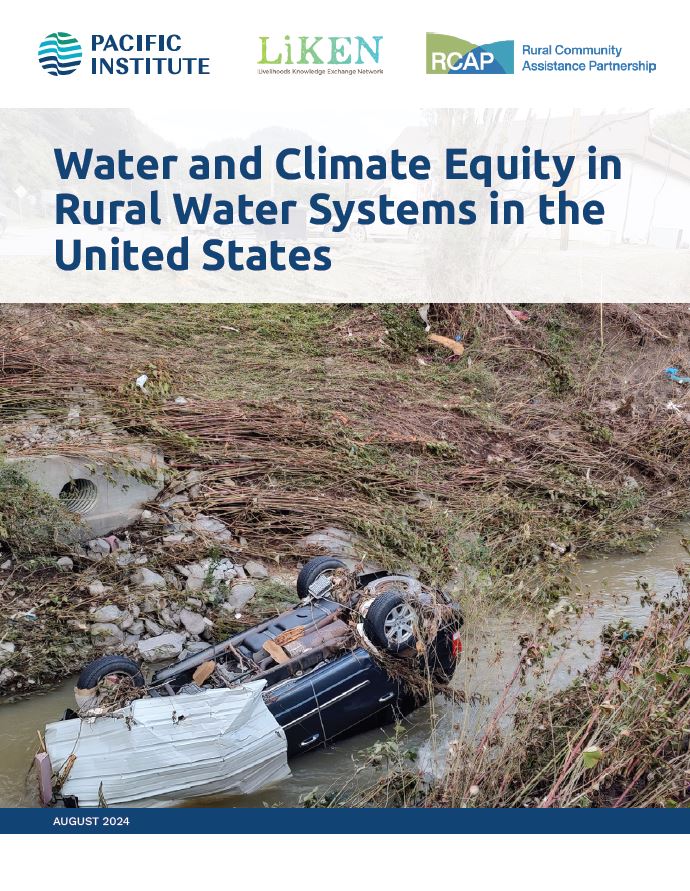
Water and Climate Equity in Rural Water Systems in the United States
August 7, 2024 | publication
Climate change is leading to devastating consequences for water and wastewater systems in rural communities across the United States. Many factors converge to create inequitable risks, and decision-makers must grapple with complex realities when devising and implementing strategies to build resilience.
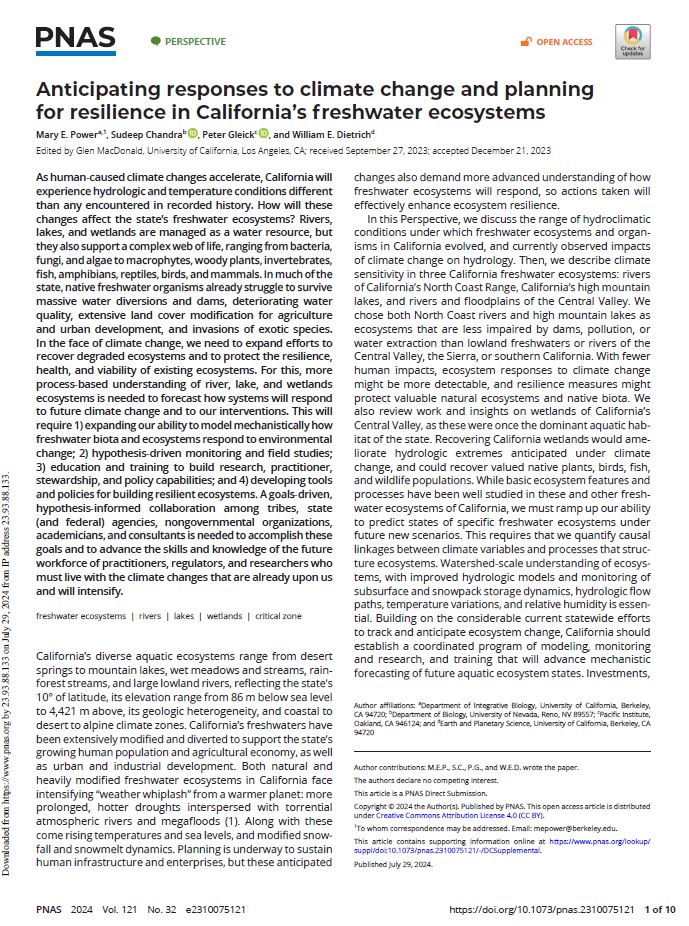
Anticipating Responses to Climate Change and Planning for Resilience in California’s Freshwater Ecosystems
July 29, 2024 | publication
In this peer-reviewed paper, Pacific Institute Senior Fellow and Co-Founder Dr. Peter Gleick and co-authors Mary Power, Sudeep Chandra, and William Dietrich discuss potential solutions for resilience in California's freshwater ecosystems.
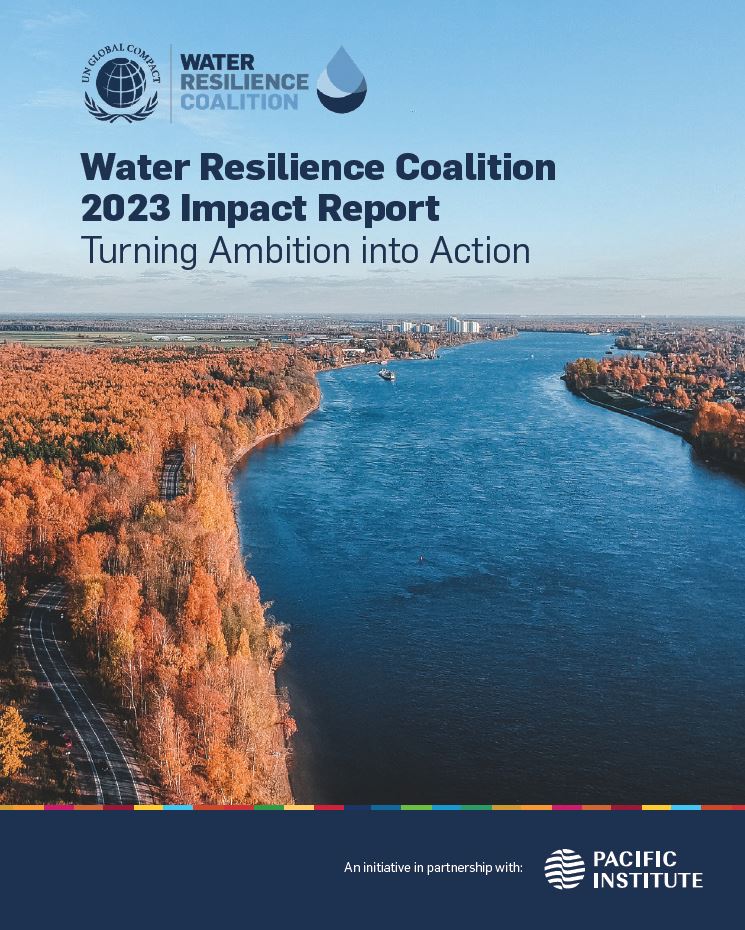
Water Resilience Coalition 2023 Impact Report: Turning Ambition into Action
June 3, 2024 | publication
The Water Resilience Coalition has released its 2023 Impact Report "Turning Ambition into Action," highlighting the strides made towards a water resilient future.

Corporate Water Stewardship in the Colorado River Basin: Case Studies
May 22, 2024 | publication
These three case studies highlight the impact that corporate co-funding can have in addressing critical water challenges in the The Basin.
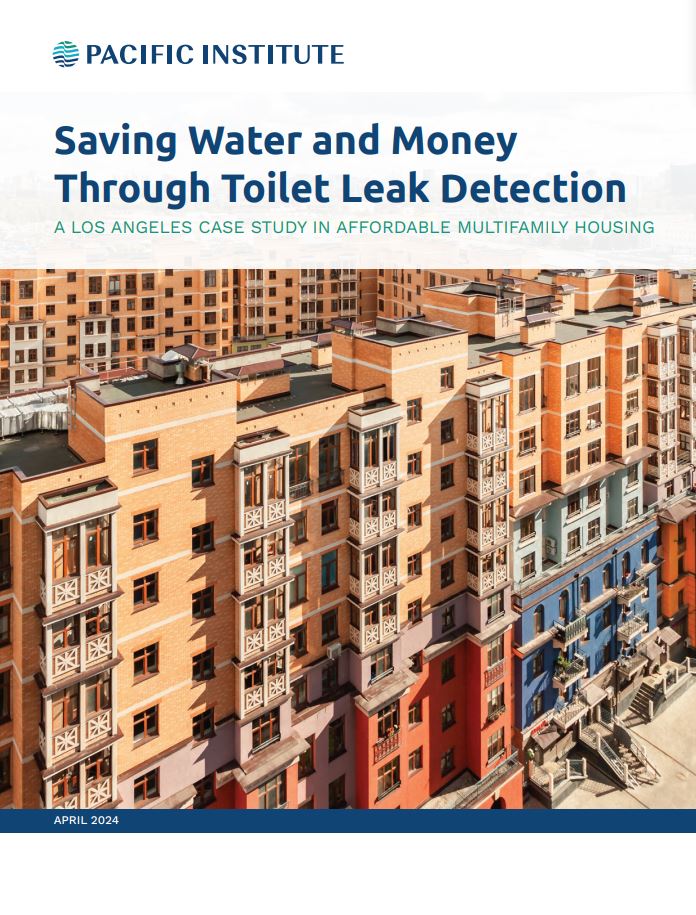
Saving Water and Money Through Toilet Leak Detection: A Los Angeles Case Study in Affordable Multifamily Housing
April 3, 2024 | publication
New Pacific Institute research finds toilet leak detection can offer significant water and cost savings at multifamily housing buildings in the United States, addressing a critical yet overlooked aspect of urban water efficiency.
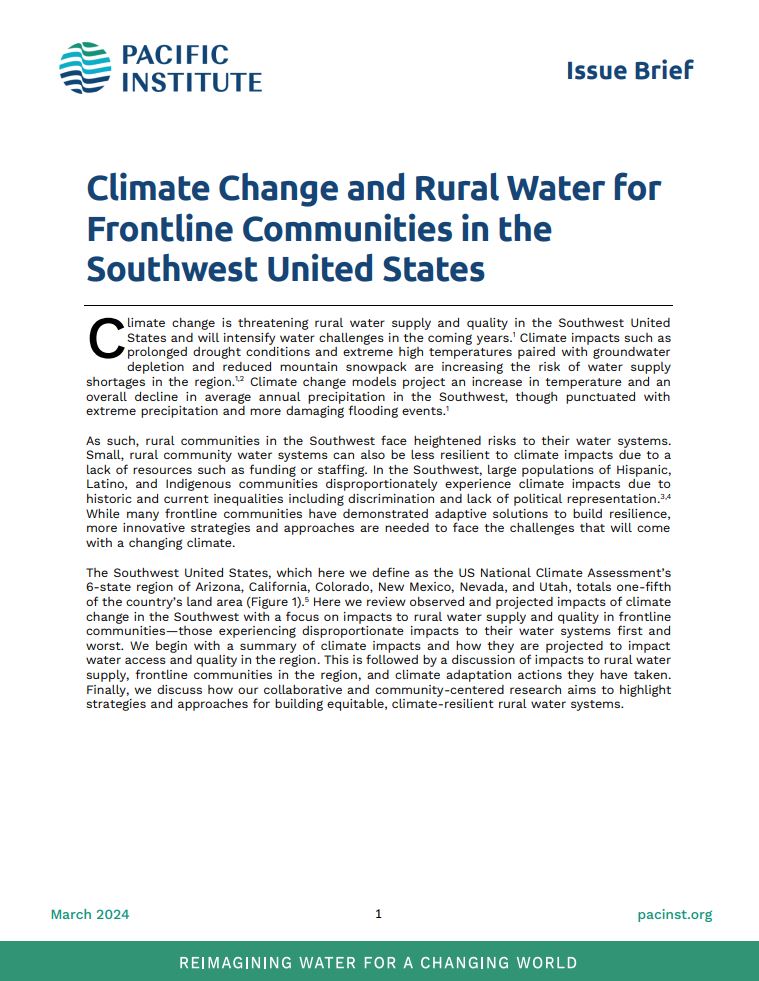
Climate Change and Rural Water for Frontline Communities in the Southwest United States
March 26, 2024 | publication
This issue brief provides an overview of the escalating threat climate change poses to rural water for frontline communities in the Southwest United States. This region, defined by the US National Climate Assessment’s 6-state area (Arizona, California, Colorado, New Mexico, Nevada, and Utah), is facing increasing water challenges due to prolonged droughts, extreme temperatures, groundwater depletion, wildfire, flooding, and reduced mountain snowpack.
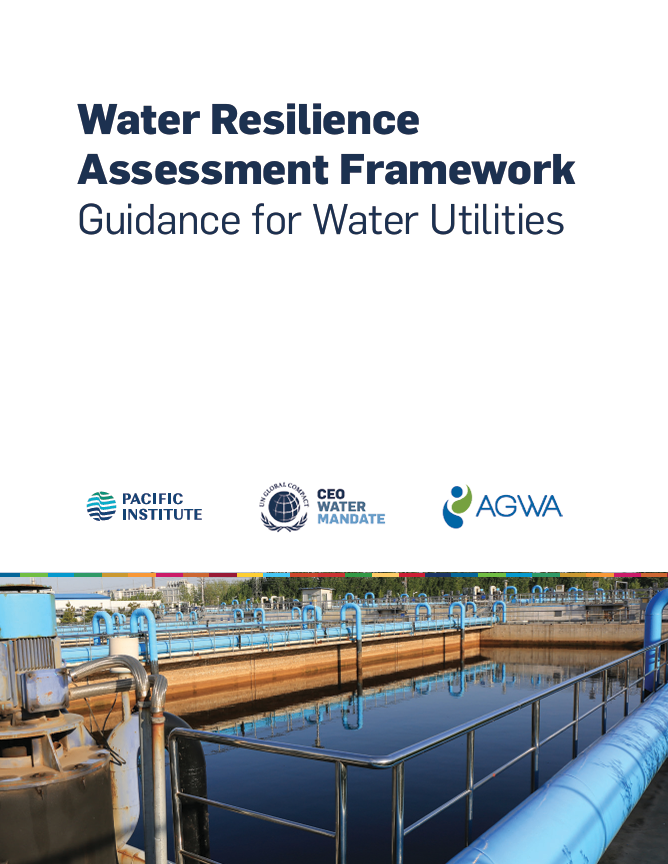
Water Resilience Assessment Framework: Guidance for Water Utilities
March 22, 2024 | publication
The "Water Resilience Assessment Framework: Guidance for Water Utilities" is the second in the series and empowers utilities to embark on a journey of resilience-building, enabling them to not only survive but thrive in the face of climate stressors and other uncertainties.
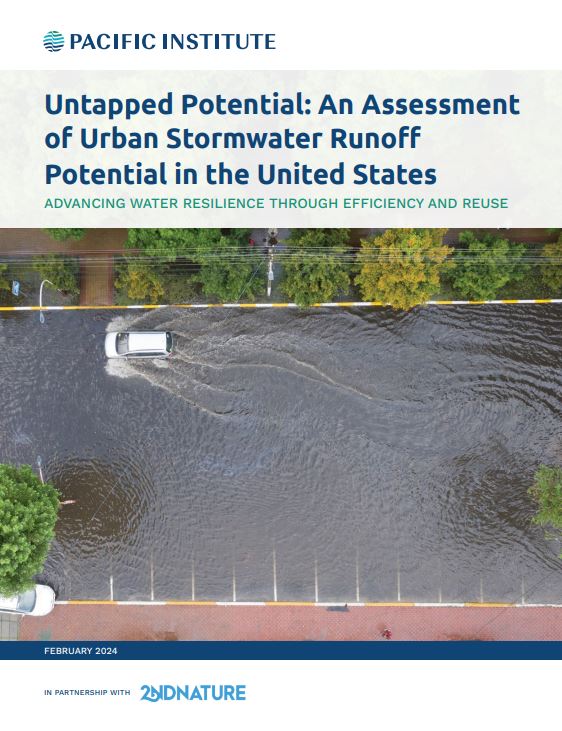
Untapped Potential: An Assessment of Urban Stormwater Runoff Potential in the United States
February 29, 2024 | publication
Urban communities across the United States face a range of water challenges. These include intensifying impacts of flooding and drought, water scarcity risks, constraints on traditional water supplies facing peak water limits, and water pollution. Novel approaches are needed to address these challenges and improve long-term water resilience.
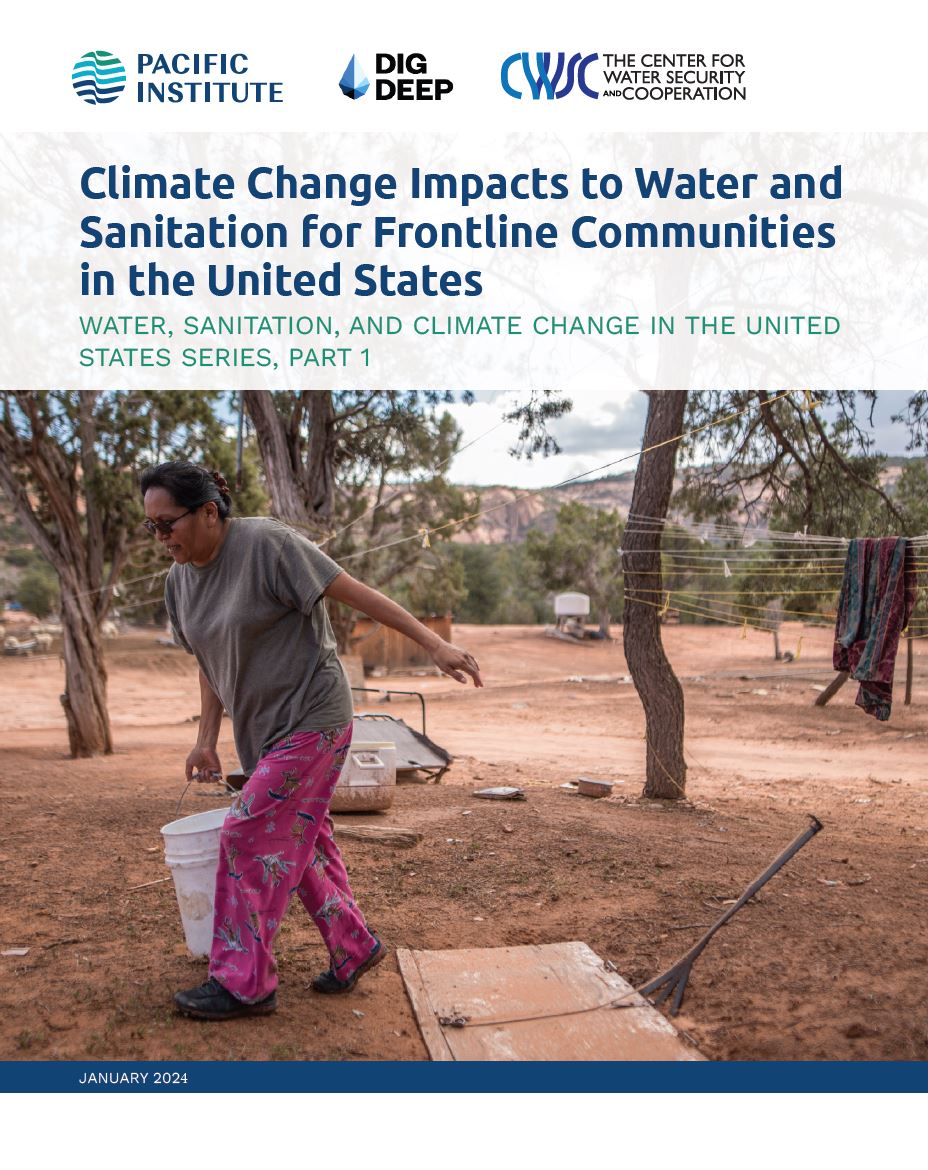
Climate Change Impacts to Water and Sanitation for Frontline Communities in the United States: Water, Sanitation, and Climate Change in the United States Series, Part 1
January 30, 2024 | publication
The Pacific Institute and DigDeep in collaboration with the Center for Water Security and Cooperation, presents the first report in a series titled “Water, Sanitation, and Climate Change in the United States.”
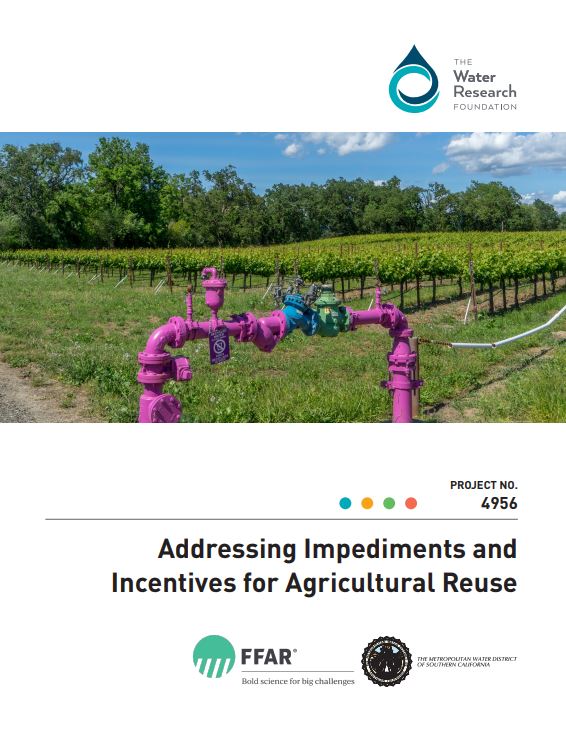
Addressing Impediments and Incentives for Agricultural Reuse
December 13, 2023 | publication
Water systems across the United States are facing unprecedented levels of stress arising from challenges, such as a changing climate, aging infrastructure, and shifting patterns of water supply and demand. Agricultural water reuse has the potential to increase the resilience of water and agricultural systems through benefits. such as supply diversification, access to an additional water supply, nutrient management, and compliance with water quality permits. However, realization of these benefits and scaling reuse are hindered by broad ranging, but surmountable barriers and tradeoffs.
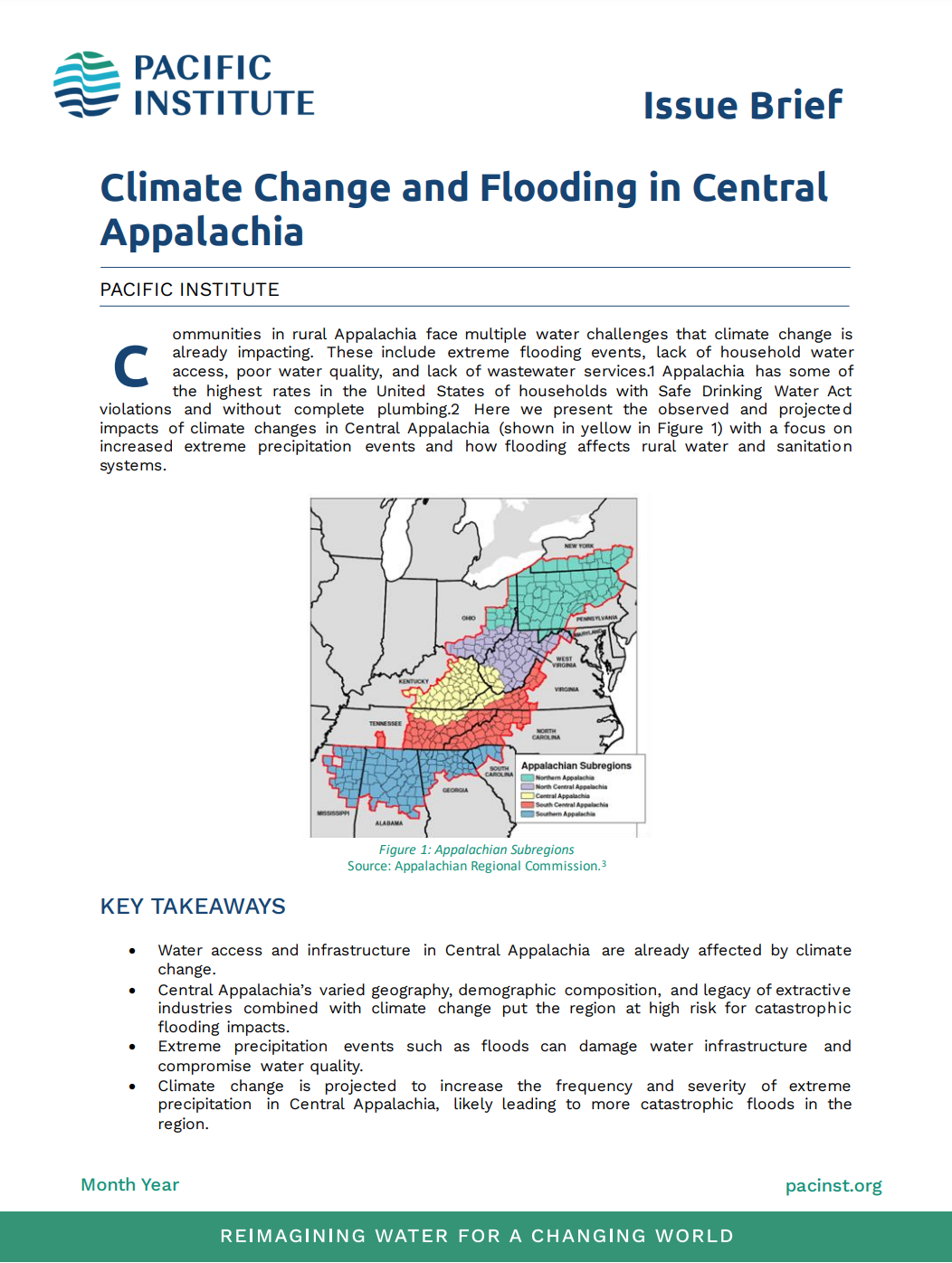
Climate Change and Flooding in Central Appalachia
November 30, 2023 | publication
Communities in rural Appalachia face multiple water challenges that climate change is already impacting. These include extreme flooding events, lack of household water access, poor water quality, and lack of wastewater services.
Page 2 of 29
From the Blog
- Feb 20, 2026
- From Davos: Scaling Business Leadership on Water Resilience
- Dec 16, 2025
- Colorado River Deadlines & Incentives
- Dec 02, 2025
- A Year-End Conversation with Jason Morrison
- Nov 13, 2025
- Pacific Institute Convenes Leaders to Accelerate Corporate Action on Water Resilience in California
- Nov 03, 2025
- Air Pollution and Health in the Coachella Valley


